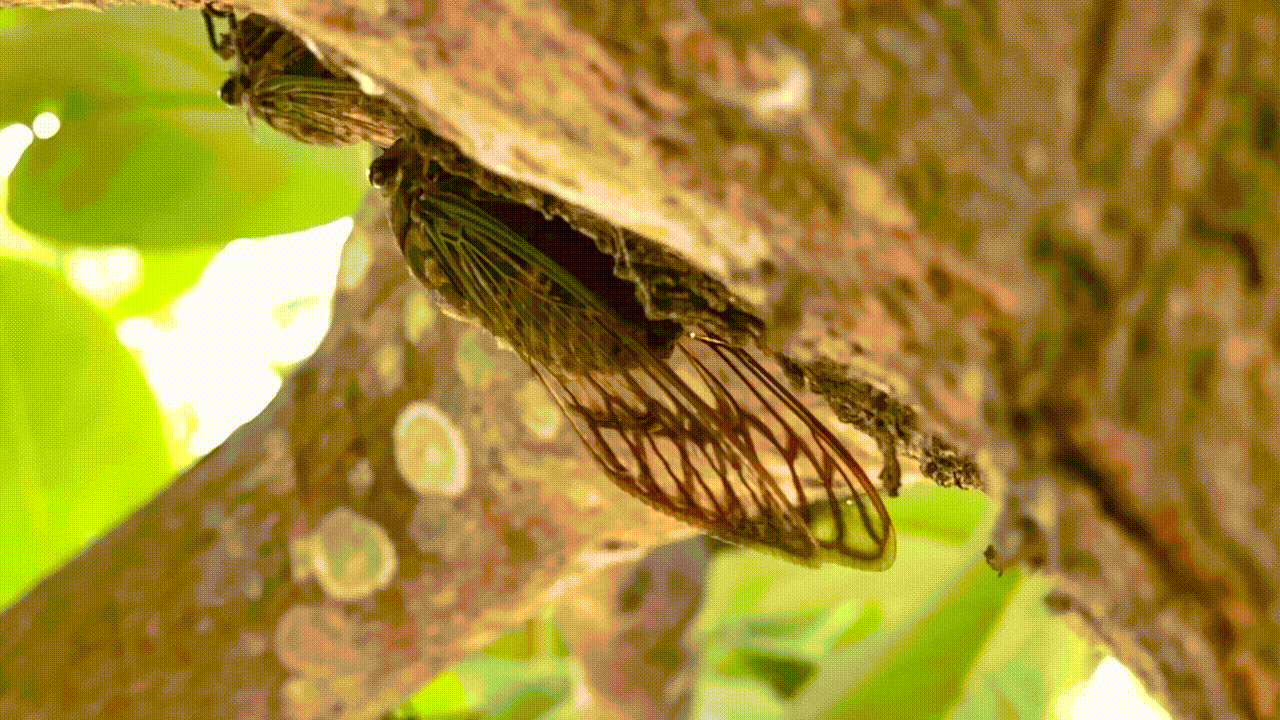New Research
Planning a Road Trip for the Total Solar Eclipse? Here's Why You Should Drive Extra Carefully
Scientists found a 31 percent increase in fatal car crashes around the 2017 total solar eclipse, akin to spikes in traffic risk on busy holiday weekends
Stone Age People Survived a Supervolcano Eruption by Adapting to Dry Periods, Archaeologists Suggest
Humans living in northwest Ethiopia around 74,000 years ago switched to eating more fish following the eruption, a behavior that might have enabled migration out of Africa
Dogs Can Understand the Words for Several Objects, Such as Toys and Leashes, Study Finds
Your dog may know the word "ball" is associated with their favorite round squishy toy, according to new research that measured brain waves
Mathematician Who Made Sense of the Universe's Randomness Wins Math's Top Prize
Michel Talagrand took home the 2024 Abel Prize for his work on stochastic systems, randomness and a proof of a physics reaction that many experts thought was unsolvable
Titan's Massive Dunes May Be a Comet and Moon Graveyard From the Early Solar System
A new modeling study suggests the dark dunes on Saturn's largest moon are made of tiny particles created by crashing comets and moonlets billions of years ago
This Extremely Rare Neurological Condition Makes Faces Appear Distorted or 'Like a Demon'
For the first time, scientists have recreated what one patient suffering from prosopometamorphopsia, or PMO, sees when he looks at faces
Incredibly Well-Preserved Bronze Age Village Reveals a Snapshot of Early British Life Before a Fire
Residents fled when flames burned through the Must Farm settlement, and now, archaeologists have unearthed its buildings and objects that were preserved in a riverbed
Alaska's Frigid North Slope Was Once a Lush, Wet, Dinosaur Hotspot, Fossils Reveal
Conditions north of the Arctic Circle, where dinosaurs roamed in abundance during the mid-Cretaceous, were warmer than today, with rainfall comparable to “modern-day Miami”
Archaeologists Keep Finding Preserved Human Brains. But How Do the Organs Remain Intact?
Scientists have unearthed more than 4,400 human brains—some more than 12,000 years old—making them less rare than thought, a new study finds
Plastics Contain Thousands More Chemicals Than Thought, and Most Are Unregulated, Report Finds
A new database catalogs 16,000 chemicals found in plastics and identifies more than 4,200 that are potentially hazardous to human health and the environment
Daddy Longlegs Have Four Extra, Hidden Eyes, Researchers Say
The new discovery could help scientists unravel the mystery of how the arachnids evolved across some 537 million years
Most Astronauts Experience 'Space Headaches' While on the ISS, Study Finds
Surveys of 24 astronauts who traveled to the International Space Station found that nearly all of them reported headaches, and many of these occurred past the first week in space
Python Meat Could Be a Sustainable, Nutritious Food Source, Scientists Say
The snakes may be some of the most resource-efficient animals to farm on the planet, a new study suggests
Mars Has an Unexpected Influence on Earth's Oceans and Climate, Repeating Every 2.4 Million Years, Study Finds
The gravitational interactions between Mars and Earth as they orbit the sun may have periodically promoted a warmer climate and changes in ocean circulation on our home planet
Whales That Go Through Menopause Live Longer and May Help Care for Grandchildren
Alongside humans, five species of toothed whales are known to experience menopause. A new study suggests they evolved the trait to increase their lifespan
For Most Mammal Species, Males Actually Aren't Larger Than Females, Study Finds
New research upends a long-held theory that male mammals tend to be bigger than their female counterparts
Modern Indian People Have a Wide Range of Neanderthal DNA, Study Finds
Genomes of Indian people today reveal links to a prehistoric migration and a group of Iranian farmers, as well as several new sequences from the Neanderthal genome
Don't Look Up: Cicadas Produce High-Speed Jets of Urine
The noisy, winged insects produce pee the same way that much larger animals do, according to a new study
Asian Elephants Bury Their Dead, New Research Suggests
In India, five dead calves were found buried on their backs in irrigation ditches, with evidence that multiple herd members had participated in the burials
Mesoamericans May Have Drunk Tobacco During Rituals 1,000 Years Ago
New research reveals evidence of nicotine residue on vases unearthed in Guatemala
Page 3 of 241
:focal(1451x967:1452x968)/https://tf-cmsv2-smithsonianmag-media.s3.amazonaws.com/filer_public/2d/99/2d99cb59-5479-4349-b86c-daca8aca7cf3/gettyimages-836529436.jpg)
:focal(2000x1352:2001x1353)/https://tf-cmsv2-smithsonianmag-media.s3.amazonaws.com/filer_public/fd/b7/fdb7f9d2-74a4-48ef-97f8-7e6d3e18af98/gettyimages-1138455324.jpg)
:focal(640x427:641x428)/https://tf-cmsv2-smithsonianmag-media.s3.amazonaws.com/filer_public/71/c3/71c3994d-e0f1-47b8-a6e7-1e5593d05a4a/boxer-4214890_1280.jpg)
:focal(1280x719:1281x720)/https://tf-cmsv2-smithsonianmag-media.s3.amazonaws.com/filer_public/dd/d7/ddd78c12-a068-4ce4-a689-0205979e5e62/abelprize-micheltalagrand-bypeterbadge_typos1_abelprize2024-lede-scaled.webp)
:focal(762x434:763x435)/https://tf-cmsv2-smithsonianmag-media.s3.amazonaws.com/filer_public/77/28/772863a6-f8bc-4b47-ac3e-4ca78a6d115a/titan2.webp)
:focal(1874x1223:1875x1224)/https://tf-cmsv2-smithsonianmag-media.s3.amazonaws.com/filer_public/47/a7/47a7f676-2933-45ee-88d1-ab0b94114c2f/all_faces.jpg)
:focal(450x300:451x301)/https://tf-cmsv2-smithsonianmag-media.s3.amazonaws.com/filer_public/e0/91/e091f4c6-1de0-4bad-84be-dcdf96f634cd/mf21-900x600.jpg)
:focal(1024x683:1025x684)/https://tf-cmsv2-smithsonianmag-media.s3.amazonaws.com/filer_public/a2/ed/a2edc4c0-2b5b-4b65-9606-33bc63f9ed8a/dscf6998.jpg)
:focal(450x300:451x301)/https://tf-cmsv2-smithsonianmag-media.s3.amazonaws.com/filer_public/7a/0c/7a0ce4aa-4806-4cfa-be66-53d24fe02d9c/sei_196636575.png)
:focal(1500x871:1501x872)/https://tf-cmsv2-smithsonianmag-media.s3.amazonaws.com/filer_public/87/d1/87d1d42d-7802-4ef3-a2fe-72a78051c946/gettyimages-98057150.jpg)
:focal(1024x575:1025x576)/https://tf-cmsv2-smithsonianmag-media.s3.amazonaws.com/filer_public/5d/f6/5df61598-eafd-4d89-9600-c43992cb1e01/phalangium_opilio_01_mk.jpg)
:focal(960x640:961x641)/https://tf-cmsv2-smithsonianmag-media.s3.amazonaws.com/filer_public/f2/88/f2880469-c4f9-4ef7-8631-95e644d29d05/iss.jpeg)
:focal(1024x683:1025x684)/https://tf-cmsv2-smithsonianmag-media.s3.amazonaws.com/filer_public/52/4b/524bf090-00ea-4348-b810-1e4e151c41a8/49122460068_97fb2122d6_k.jpg)
:focal(681x512:682x513)/https://tf-cmsv2-smithsonianmag-media.s3.amazonaws.com/filer_public/0a/d7/0ad73452-f6d2-47e4-ad5b-d4bc1abae738/ezgif-3-0b922f8a81_cropped.jpg)
:focal(1929x1258:1930x1259)/https://tf-cmsv2-smithsonianmag-media.s3.amazonaws.com/filer_public/fc/b2/fcb2f4a1-dccc-4314-b739-e5e5b993f77b/gettyimages-547332154.jpg)
:focal(1957x1323:1958x1324)/https://tf-cmsv2-smithsonianmag-media.s3.amazonaws.com/filer_public/b3/7b/b37b38b2-5ed2-4669-8957-a961d4e7f606/gettyimages-474621363.jpg)
:focal(2563x1709:2564x1710)/https://tf-cmsv2-smithsonianmag-media.s3.amazonaws.com/filer_public/b1/e6/b1e638dc-f18c-41d9-beeb-10e7505d2dce/gettyimages-527487618.jpg)

:focal(640x482:641x483)/https://tf-cmsv2-smithsonianmag-media.s3.amazonaws.com/filer_public/16/08/16084453-c818-4c07-90da-c962fbbb4887/image4_2.jpeg)
:focal(1007x758:1008x759)/https://tf-cmsv2-smithsonianmag-media.s3.amazonaws.com/filer_public/fc/b6/fcb6694b-56d5-4f6b-a8cc-6a7dbc5b6a22/urn_cambridgeorg_id_binary-alt_20240221164013-60853-optimisedimage-png-s0003598x24000139_fig5.jpeg)